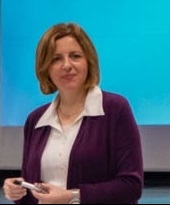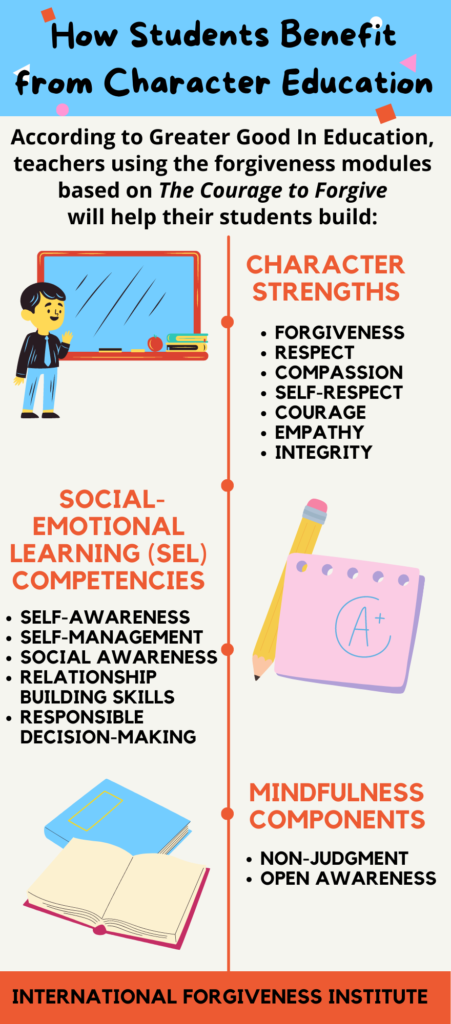Tagged: “Education”
JOIN US! International Educational Conference on Agape Love and Forgiveness
A research project focusing on agape love and forgiveness, now underway in three culturally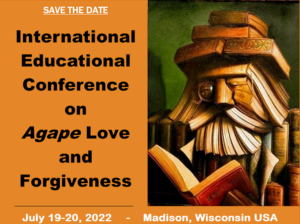 distinct areas of the world, will culminate next summer with an international educational conference to be held in Madison, Wisconsin. The conference will be hosted by the International Forgiveness Institute (IFI)—the nonprofit organization founded in Madison 27 years ago. The research is being conducted by researchers at the University of Wisconsin-Madison.
distinct areas of the world, will culminate next summer with an international educational conference to be held in Madison, Wisconsin. The conference will be hosted by the International Forgiveness Institute (IFI)—the nonprofit organization founded in Madison 27 years ago. The research is being conducted by researchers at the University of Wisconsin-Madison.
Working with elementary school children in Northern Ireland, Israel (both Arabic- and Hebrew-speaking schools), and Taiwan, the research is being funded by the John Templeton Foundation which has been supporting research on forgiveness for more than 20 years. The Foundation’s p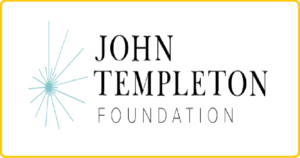 rimary goal is “to ignite a global conversation on forgiveness to help everyone experience its benefits and to increase the visibility and funding of forgiveness innovations.”
rimary goal is “to ignite a global conversation on forgiveness to help everyone experience its benefits and to increase the visibility and funding of forgiveness innovations.”
The 3-year project was developed by and is being conducted under the direction of Dr. Robert Enright, co-founder of the IFI and a professor of educational psychology at the University of Wisconsin-Madison. Its principal focus is on incorporating agape love fundamentals with Dr. Enright’s Forgiveness Curriculum materials for 5th grade students.
“Agape love is drawn from Greek tradition and is the highest expression of forgiveness toward those who caused pain,” Dr. Enright explains. “I call it the ultimate form of love—the kind of love that has never before been scientifically examined as part of forgiveness research.”
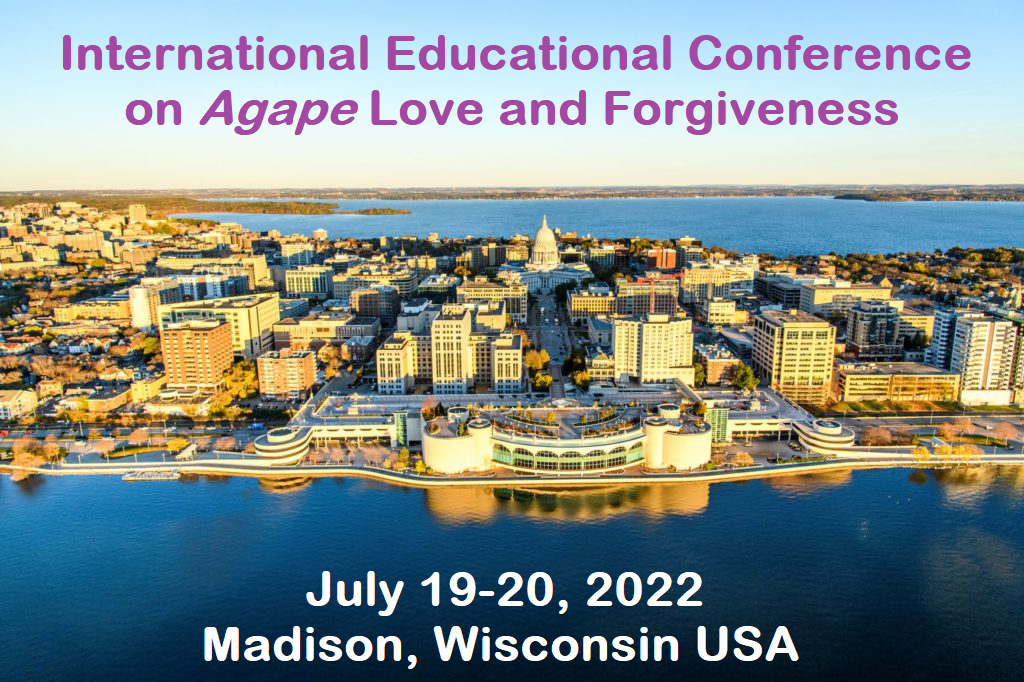 The research portion of the agape love and forgiveness education project will continue through most of this school year with 60 teachers and up to 1,200 students at the experimental sites. Some of those educators will outline their experiences and present their findings during the July 19-20, 2022 International Educational Conference on Agape Love and Forgiveness at the University of Wisconsin-Madison campus.
The research portion of the agape love and forgiveness education project will continue through most of this school year with 60 teachers and up to 1,200 students at the experimental sites. Some of those educators will outline their experiences and present their findings during the July 19-20, 2022 International Educational Conference on Agape Love and Forgiveness at the University of Wisconsin-Madison campus.
A new website that was created specifically for this Templeton Foundation project was recently launched with an abundance of information about agape love, forgiveness education, and the Conference. The website will serve as an ongoing platform where educators can access curricula and other teaching resources. It will also house all Conference presentations and education materials developed through the project. Visit the website: Agape Love and Forgiveness.
- Learn what agape love is and what makes it unique: Agape Love.
- Learn about the amazing benefits of Forgiveness Education.
Forgiveness Education in Greek Schools Now Includes How to Handle Trauma and Anger
More than 3,000 grade school students in Greece are learning how to reduce their anger, increase cooperation, gain resilience, and transform their traumas into personal character strengths through Forgiveness Education classes during this 2021-2022 school year.
“Trauma Transformation Through Forgiveness Education” is a social-emotional learning (SEL) program developed by Dr. Peli Galiti, Ph.D., M.Ed., research scholar at the University of Wisconsin – Madison. Dr. Galiti, a native of Athens, is also Director of the Greek Forgiveness Education Program (GFEP) started in 2014 by the Madison-based International Forgiveness Institute (IFI).
“This one-of-a-kind program is based on the educational research studies conducted by Dr. Robert Enright who pioneered the field of Forgiveness Education,” says Dr. Galiti. “His studies have demonstrated that Forgiveness Education classes help students reduce in anger and hostile attribution, increase in empathy, and actually result in improved grades.”
Dr. Enright is a UW-Madison educational psychology professor who co-founded the International Forgiveness Institute in 1994. He has developed comprehensive Forgiveness Education curricula for students in grades K-4 through 12th that are now being used in more than 30 countries around the world.
According to Dr. Galiti, the new program is actually a collaboration between the IFI, UW-Madison, and two Greek universities—the Aristotle University of Thessaloniki and the National and Kapodistrian University of Athens (where Dr. Galiti previously lectured). Funding is provided by the Athens-based Stavros Niarchos Foundation, one of the world’s leading private, international philanthropic organizations. The program also has the endorsement of the Greek Ministry of Education.
Dr. Galiti began implementation of the Trauma Transformation program last September by leading a series of Forgiveness Education workshops for 110 Greek teachers. Those teachers are delivering the forgiveness classes this semester at schools in four Greek cities–Athens, Larisa, Patra, and Thessaloniki.
That training focused on techniques and methods the teachers could use to help their students manage traumatic experiences and any personal or relational difficulties that might cause harm and pain. Thematic instructional units included:
- Forgiveness Education theory and principles.
- Why forgiveness is necessary and how it is applied in the school environment.
- Theories about trauma and its treatment.
- Transformation and wound healing through Forgiveness Education.
- Collaboration in the classroom and conflict resolution.
- The experience of Forgiveness Education in Greek schools: Best Practices and Case Studies.
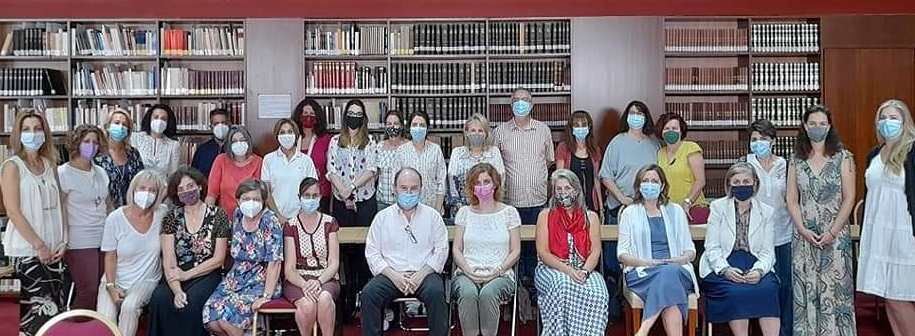
These grade school teachers in Athens were among the 110 teachers who received Forgiveness Education training conducted by Dr. Peli Galiti as part of the collaborative effort between the University of Wisconsin-Madison and the University of Thessaloniki.
The collaborative training efforts for this Forgiveness Education program have received support and major funding through the Greek Diaspora Fellowship Program that is designed to help avert Greece’s brain drain and develop long-term, mutually beneficial collaborations between universities in Greece, the United States, Canada, South Africa and Australia. The Fellowship Program is managed by the Institute of International Education in collaboration with the Fulbright Foundation in Greece, and funded by the Stavros Niarchos Foundation.
In 2017, Dr. Galiti was one of 30 Greek- and Cypriot-born scholars representing 28 prominent United States and Canadian universities who traveled to Greece to conduct academic projects with their peers at Greek universities as part of the Greek Diaspora Fellowship Program. As part of her fellowship, Dr. Galiti hosted workshops about Restorative Justice and Forgiveness Education, along with conducting research about bullying prevention and class collaboration.
- Visit the Greek Forgiveness Education Program website.
- Watch a 4 min. 12 sec. video about the Greek program: Learning to Forgive.
- Read more about Dr. Galiti’s eductional work in Greece.
- Watch a video webinar on Greek Forgiveness Education featuring presentations by Dr. Galiti and Dr. Enright.
About the Stavros Niarchos Foundation:
The Stavros Niarchos Foundation (SNF) (www.SNF.org), is one of the world’s leading private, international philanthropic organizations, making grants in the areas of arts and culture, education, health and sports, and social welfare. Since 1996, SNF has committed more than $3.3 billion through 5,100 grants to nonprofit organizations in 135 countries around the world.
The Foundation funds organizations and projects that are expected to achieve a broad, lasting and positive impact for society at large, and exhibit 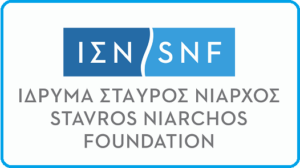 strong leadership and sound management. The Foundation also supports projects that facilitate the formation of public-private partnerships as an effective means for serving public welfare. In addition to its standard grants, the SNF has continued to respond to the urgent needs of Greek society, by providing relief against the severe effects of the socioeconomic crisis through three major grant initiatives of $378 million.
strong leadership and sound management. The Foundation also supports projects that facilitate the formation of public-private partnerships as an effective means for serving public welfare. In addition to its standard grants, the SNF has continued to respond to the urgent needs of Greek society, by providing relief against the severe effects of the socioeconomic crisis through three major grant initiatives of $378 million.
Greater Good in Education Promotes Forgiveness/Character Education
An internationally-acclaimed organization that provides research-based tools for professional educators is touting the most recent International Forgiveness Institute (IFI) curriculum guide by creating an entire “best practices” forgiveness component for educators on its website.
Forgiveness for Elementary School is a collection of four practices that provide students with tools to help them understand and begin a journey toward forgiveness. Published on the Greater Good in Education (GGIE) website, the module is dedicated to helping teachers implement learning techniques that focus on forgiveness, mindfulness, and character education.
Those techniques are presented in the new IFI Curriculum Guide The Courage to Forgive: Educating Elementary School Children About Forgiveness. The guide was written by Dr. Suzanne Freedman, forgiveness researcher and Professor of Educational Psychology at the University of Northern Iowa, and Dr. Robert Enright, IFI founder and Professor of Educational Psychology at the University of Wisconsin-Madison.
The Courage to Forgive is a social-emotional learning (SEL)/character education teaching guide that features 16 lessons, each approximately 45 minutes in length. It includes a comprehensive 15-page introduction that explains what forgiveness is (and is not) as well as why forgiveness is such a crucial subject for grade school students. The guide becomes the 15th volume in the IFI’s library of curriculum guides (for students in pre-kindergarten through high school) and the 19th educational training program offered by the IFI.
“Although the new curriculum was written specifically with 4th and 5th grade students in mind, it can be used with younger students as well as those in middle school,” according to Dr. Freedman. “We designed it so that the instructional activities can be modified as necessary for different age groups–even adults.”
The GGIE website component includes these four modules which are based on The Courage to Forgive curriculum:
1. Creating Space for Forgiveness by Letting Go of Anger
In this module, students discuss the negative consequences that anger can have, identify the benefits of letting go of anger after expressing it, and brainstorm ideas for how to cope with anger.
2. Introduction to Forgiveness
Students develop a working definition for what forgiveness is and what it is not, and consider its relationship to justice, revenge, the role of apology, and reconciliation.
3. Understanding Inherent Worth: A Path towards Forgiveness
As a class, students read the book Let’s Talk About Race by Julius Lester to begin a discussion on inherent worth, then think critically about how inherent worth and forgiveness are related. Links to a virtual reading of the book are included.
4. Learning from Courageous Forgivers
Students read The Story of Ruby Bridges by Robert Coles and reflect on the value of being a forgiving person, as exemplified by the story. Again, links to a virtual reading are provided.
“Forgiveness education focuses on recognizing and validating students’ anger, as well as teaching students to express emotions in a healthy way, understand the perspective and humanity of others, and practice empathy and compassion toward others,” Dr. Freedman added. “It is almost impossible to go through life without experiencing hurt, and knowing how to forgive gives students the opportunity to choose love and kindness over anger and hatred.”
Greater Good in Education is produced by the University of California-Berkeley’s award-winning Greater Good Science Center (GGSC). The Greater Good Education Program presents education professionals with practical, scientific insights that help them better understand the roots ![]() of kind, helpful–or “prosocial”–behavior and emotional well-being, and how they can build those skills in themselves, their colleagues, and their students.
of kind, helpful–or “prosocial”–behavior and emotional well-being, and how they can build those skills in themselves, their colleagues, and their students.
The 65-page The Courage to Forgive curriculum guide is available in downloadable electronic format on the IFI website for $30. GGIE readers are able to purchase the electronic version at a discounted price of just $15.
TIME Magazine: Forgiveness is One of Mankind’s Most Important Innovations
Calling forgiveness one of mankind’s “most important innovations,” TIME magazine is doubling down on its 22-year infatuation with the moral virtue by declaring, “Beset by a global plague, political turmoil, and social reckonings, it’s time for forgiveness to go viral.”
The internationally acclaimed news publication first introduced the science of forgiveness to its readers on March 28, 1999, in an essay titled “Should All Be Forgiven?” That widely-cited introductory overview of forgiveness—one of the first ever in a publication designed for the general public—helped usher in a plethora of forgiveness-related articles since then that reported on the superabundance of new research projects focused on forgiveness.
“In the past two years, scientists and sociologists have begun to extract forgiveness and the act of forgiving from the confines of the confessional, transforming it into the subject of quantifiable research,” the TIME article in 1999 sermonized. “In one case, they have even systemized it as a 20-part ‘intervention’ that they claim can be used to treat a number of anger-related ills in a totally secular context. In short, to forgive is no longer just divine.”
The “20-part intervention” in the TIME quote (above) is a reference to the Enright Process Model of Forgiveness that was just being developed at that time by Dr. Robert Enright, a University of Wisconsin-Madison clinical psychology professor and forgiveness researcher. Dr. Enright had founded the International Forgiveness Institute four years earlier.
For his leadership work with that early model and for his development of innovative forgiveness interventions, TIME magazine crowned Dr. Enright “the forgiveness trailblazer.” Shortly after receiving that recognition, The Los Angeles Times editorialized that Dr. Enright is “the guru of what many are calling a new science of forgiveness.” The Christian Science Monitor called him “the father of forgiveness research.”
Fast forward 22-years and you will discover an updated and enthusiastic TIME magazine essay with this headline: “After a Year That Pushed Us to the Brink, It’s Time for Forgiveness to Go Viral.” The dictionary definition of “going viral,” of course, is when an idea is of such significance that it spreads quickly and widely on the Internet. In this case, it also refers to the actual implementation of that idea which is described in the article much like a miracle cure:
“It is a powerful solution backed up by both cutting edge neuroscience and age-old wisdom. It leads to greater cooperation, eases conflict, increases personal happiness, lowers anxiety and is completely free. It’s called forgiveness.”
One of the studies cited in this latest article is a comparison of various forgiveness interventions. Among those available for testing, the study concludes, Dr. Enright’s interventions are the most effective. “Using theoretically grounded forgiveness interventions is a sound choice for helping clients to deal with past offenses and helping them achieve resolution in the form of forgiveness,” according to the study. “. . . the advantage for individual interventions was most clearly demonstrated for Enright-model interventions.” (Efficacy of psychotherapeutic interventions to promote forgiveness: a meta-analysis)
That recent TIME article also makes a direct comparison between the success of the forgiveness coalition and the “mindfulness and meditation” movement:
“Like forgiveness, mindfulness and meditation have been shown in many circumstances to reduce stress levels, mitigate heart disease, and lower blood pressure. Can we create the same level of cultural penetration for forgiveness? Our future may well depend on it. Beset by a global plague, political turmoil, and social reckonings, it’s time for forgiveness to go viral.”
The latest TIME article was authored by Andrew Serazin, President of the Templeton World Charity Foundation and Chair of the Forgiveness Forum, a series of global conversations on the mental and physical health benefits of forgiveness.
Editor’s Note: To illustrate the dramatic upward trajectory of the forgiveness movement, when Dr. Enright began exploring the social scientific study of forgiveness in 1985, there were no published empirical studies on person-to-person forgiveness. Today there are more than 3,000 published articles on that subject according to the National Institutes of Health (NIH), many of them authored by Dr. Enright during his 35+ years of forgiveness research and intervention ingenuity.
- Read the full TIME article: “After a Year That Pushed Us to the Brink, It’s Time for Forgiveness to Go Viral.”
- Read the full March 28, 1999 TIME article: “Should All Be Forgiven?”
World Education Week Features Dr. Enright’s Forgiveness Education Initiatives
World Education Week 2021, an annual celebration of practical educational innovations that kicks off this week, will focus on Dr. Robert Enright’s Forgiveness Education initiatives—particularly those in Greece, Northern Ireland, and Liberia (West Africa).
The event, sponsored by the Templeton World Charity Foundation, provides a platform for schools and education organizations to share how they have developed their expertise with the express purpose of inspiring other schools and organizations to understand the journey to excellence. More than 100 schools and organizations around the world will be sharing their unique expertise and success stories with a global audience.
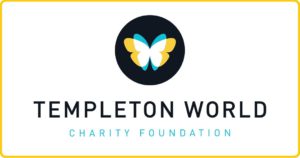 “The best thing we can do to build a better future is empower our students with the social and emotional tools they will need to live healthy, productive, thriving lives,” according to Andrew Serazin, President of Templeton World Charity Foundation. “Forgiveness is one of those critical tools.”
“The best thing we can do to build a better future is empower our students with the social and emotional tools they will need to live healthy, productive, thriving lives,” according to Andrew Serazin, President of Templeton World Charity Foundation. “Forgiveness is one of those critical tools.”
As outlined on the World Education Week website, Forgiveness Forum, a panel of experienced forgiveness teachers and educational advocates from around the world will share their unique experiences building forgiveness into curriculums and discuss its impact on classroom dynamics, on student attainment outcomes, and on teacher well-being.
Two members of that three-person panel of experts have a combined 20 years of experience either teaching students or educating teachers about Dr. Enright’s Forgiveness Education Program:
- Dr. Peli Galiti,
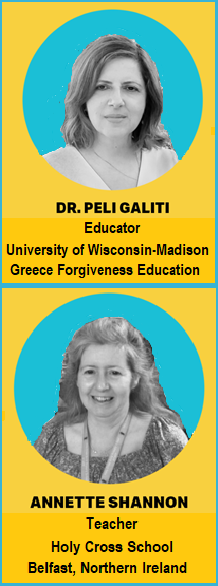 Ph.D., M.Ed., has been conducting training workshops for Greek teachers for the past 9 years and has trained more than 600 teachers to use Forgiveness Education. The Program is now being taught to more than 6,000 students as part of the Greek Forgiveness Education Program that Dr. Galiti directs.
Ph.D., M.Ed., has been conducting training workshops for Greek teachers for the past 9 years and has trained more than 600 teachers to use Forgiveness Education. The Program is now being taught to more than 6,000 students as part of the Greek Forgiveness Education Program that Dr. Galiti directs.
. - Annette Shannon, Learning Support Teacher at Holy Cross Girls’ School in Belfast, Northern Ireland, has been teaching and coordinating the school’s Forgiveness Education Program for the past 11 years.
Another prominent participant in World Education Week, Bishop Kortu Brown, Chairman/CEO of Church Aid Inc., has been National Coordinator of the Liberia Forgiveness Education Program since it was established by Dr. Enright nearly 10 years ago. Bishop Brown also appears in a 30-second promotional video about the week’s activities.
The widely acclaimed Forgiveness Education Program, developed by Dr. Enright along with collaborating curriculum experts and experienced teachers, is administered by the International Forgiveness Institute. Using children’s story books and Social Emotional Learning (SEL) techniques, the Program teaches students about the five moral qualities most important to forgiving another person–inherent worth, moral love, kindness, respect and generosity. The Program is now being used in more than 30 countries around the world.
Learn more and register for World Education Week activities (all sessions are free) on the Forgiveness Forum website.


